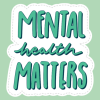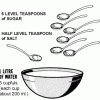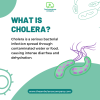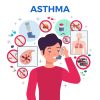Drug allergies are an abnormal reaction of your immune system to a medication. Drug allergies occurs when your immune system identifies (sometimes mistakenly) a drug as a harmful substance, and as such develops an antibody specific to that drug.
Symptoms of drug allergy ranges from having a rash or fever to having serious reactions, including a life-threatening condition called anaphylaxis which affects multiple body systems. The symptoms may occur right away or hours after receiving the drug.
Please note that a drug allergy is not the same as an already known and expected drug side effect.
Which drug most often cause an allergic reaction?
Although any drug can cause an allergic reaction, some drugs are more commonly associated with allergies than the rest. They include:
- Antibiotics such as penicillin
- Chemotherapy drugs for treating cancer
- Pain-relievers, such as aspirin and ibuprofen
While anyone can have an allergic reaction to a drug, a few factors can increase the risk of having one. These may include:
- A history of other allergies like food, dust or pet allergy
- A personal or family history of drug allergy
An Allergic reaction can cause symptoms such as:
- Itchy skin or eyes
- Runny nose
- Swelling in the mouth and throat
- Difficulty In breathing
- Fever
- Dizziness
- Fainting
- Drop in blood pressure
Treatment of drug allergies;
The goal of treatment is to relieve symptoms and prevent a severe reaction.
Treatment may include:
- Antihistamines to relieve mild symptoms such as rash and itching
- Bronchodilators such as Albuterol helps to reduce asthma-like symptoms such as wheezing or cough
- Corticosteroids applied to the skin, given by mouth, or given intravenously
- Epinephrine to help treat anaphylaxis
Preventive tips for drug allergies:
There is generally no specific way to prevent an unknown drug allergy. If you have a known drug allergy, avoiding the drug and similar medicine is the best way to prevent an allergic reaction.
Steps you can take to protect yourself include the following:
- If you have a drug allergy, always Inform your health care workers. Be sure that your drug allergy is clearly pointed out in your medical records.
- It is a good idea to wear a medical bracelet or necklace or maybe a card that identifies your drug allergy. In cases of emergency, this type of identification could save your life.
Please share this article with your friends and family on Twitter, Instagram, Facebook and even on Whatsapp so as to help them understand what drug allergies really means, it’s preventive measures as well as it’s treatment. To read more of our emergency preparedness and firataid care tips click here.






